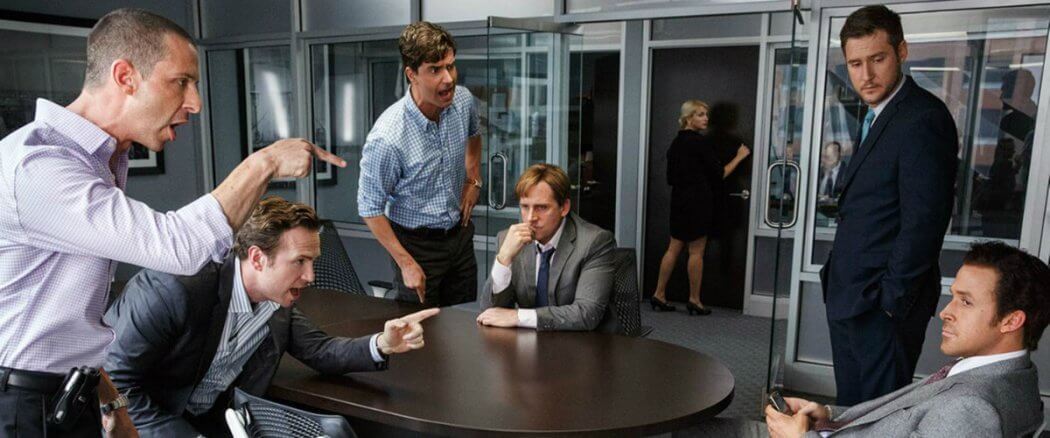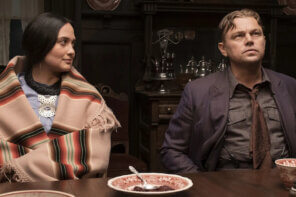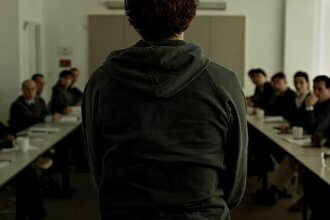When I was a young engineer (my first career) I worked in rented office space on the second floor above a small brokerage with the usual stock ticker on the wall and people standing and watching if their stocks were going up or down. As I walked past the glass windows on the way to the stairs, I was completely uninterested in what was going on in there. My cubicle mate “Don” was quite different. He was very bright, just out of the University of Michigan, and was certain he would be a millionaire in the next decade by finding the next big thing in the stock exchange. At first I watched with amusement and then with concern as one “golden opportunity” after another ended in dust. Don became more and more depressed at how “everyone else is making big bucks and whatever I try ends up a disaster.”
I was transferred to a different section, but Don told me several years later he had (after losing a lot of money) given up on trying to make a fast buck and, like most of us, had started just putting a small amount in a 401K or similar. And that was, and to some extent remains, my impression of Wall Street — a place where the big boys (and now girls) play with other people’s money making fortunes, while we peons get, at best, very little and often lose a great deal.
The Great Recession
Since my engineering days we have had cyclic booms and busts, but none of those come close to matching the “Great Recession” that started in Dec of 2007 culminating in the near failure of the American banking system as the 2008 election drew nigh. We are just now eight years later recovering from that economic calamity. Leading up to the end of 2007 banks found themselves making so much money off the hunger for housing (whose prices were steadily inflating allowing owners to refinance again and again — often on multiple dwellings) that the banks would give “subprime” mortgages (home financing to those with poor “below prime” credit) to almost anyone.
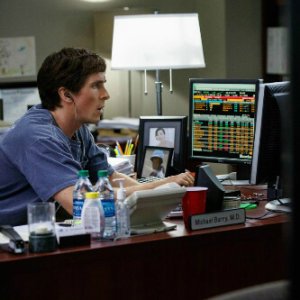 As Michael Lewis wrote in his book that served as the basis for the movie’s script, a Bakersfield, California Mexican strawberry picker with an income of $14,000 and speaking no English was encouraged to take out a mortgage and lent every penny he needed to buy a house for $742,000. As soon as his initial “teaser” rate went up to 7% he obviously lost the house.
As Michael Lewis wrote in his book that served as the basis for the movie’s script, a Bakersfield, California Mexican strawberry picker with an income of $14,000 and speaking no English was encouraged to take out a mortgage and lent every penny he needed to buy a house for $742,000. As soon as his initial “teaser” rate went up to 7% he obviously lost the house.
But the market had learned a simple lesson: Instead of “Don’t make loans to people who can’t repay them,” the maxim had become “You can keep on making these loans, just don’t keep them on your books.” Make the loans, then sell them off to the big Wall Street investment banks, which would in turn package them into bonds and sell them to investors. By the time of the foreclosure of the original, unbelievably unsound mortgage, it will have been repackaged and passed on (possibly several times over), combined with thousands of other loans so that the bond will not become worthless until housing starts to default en masse. And that was what happened starting in late 2007.
The Book and the Story
The Big Short is based on Michael Lewis’ book of the same name. Lewis has made his reputation by writing positive, sports-themed non-fiction books such as The Blind Side and Moneyball. Both were made into very successful, critically acclaimed movies. However, Lewis actually began his career working on Wall Street — the first book he wrote was Liar’s Poker about his unhappy experiences there. With that background he tackled the almost unbelievable story of not just the housing bubble, but how a handful of people made huge fortunes (and I do mean HUGE fortunes) from that bubble bursting.
As is always true about Lewis’ books, The Big Short is a fun and informative book. Sometimes it gets a little bit into the weeds about Wall Street wheeling and dealing, but it explained many things about the Great Recession that previously I had never understood. The people in Lewis’s book (the movie primarily follows four of the most prominent of them) saw the enormous amount of money that could be made by shorting the subprime mortgage bonds (and all the variations thereof) from which the big firms/banks on Wall Street were gleefully making obscene amounts of money.
The banks should have known that subprime mortgages and their manipulation of them was a house of cards which, when it fell, could very well bring down the entire American banking structure and all the companies that made their fortunes off of it. But they were making too much money to notice what these four groups of people (and a few others) were doing. They really could not believe how clueless the banks and investment houses had become.
Shorting: A Brief Explanation
If you are going to truly understand The Big Short, you need to know what shorting is. (Skip this paragraph if you know or could care less). In VERY simple terms, shorting is buying shares of a stock or bond from your broker — and thereby paying interest on that “loan” until you pay it back. Then you sell those shares for the going price so really you are only out your interest and fees. If that price falls, at some point you buy the number of shares back you borrowed but at a lower price and you give those back to your broker. You make money by betting the shares will decrease in value. You lose money if they increase in value.
As an example, you think Company RLS is overpriced at $50 a share. You borrow 100 shares from your broker and sell them for $5,000. Time passes and, as you gambled, the price falls… say to $40 a share. You buy 100 shares that you owe your broker for $4,000, pay them back and make $1,000 minus your interest and transaction fees. Ideally you would borrow the shares just before they decrease in price to minimize the amount of interest you have to pay. Now multiply these numbers by a million — I am not kidding.
The Movie Is Made
Along comes Adam McKay who co-wrote and/or directed films like Ant-Man (pretty fun) but also Anchorman (okay if you can stand Will Ferrell) and Talladega Nights, Step Brothers and Anchorman 2 (roll my eyes). Paramount, who had the rights to the book, gave the movie to Adam to co-write the script (with Charles Randolph) and direct (in return for promising to make an Anchorman sequel – a bad bargain).
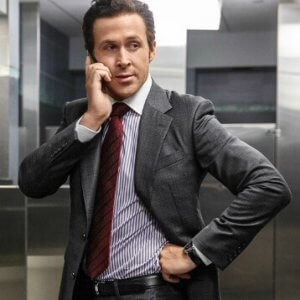 I was delightfully surprised that, with that background, I found the movie to be funny, unusually staged and perceptive, one that leaves you with the feeling something BIG is really wrong with the American financial system. Lewis’ book has been criticized as being rather disjointed. The movie is somewhat disjointed too, but less so than the book. Give credit to the screenwriters, who chose to write primarily about four of the most interesting of these groups of, now, very wealthy people.
I was delightfully surprised that, with that background, I found the movie to be funny, unusually staged and perceptive, one that leaves you with the feeling something BIG is really wrong with the American financial system. Lewis’ book has been criticized as being rather disjointed. The movie is somewhat disjointed too, but less so than the book. Give credit to the screenwriters, who chose to write primarily about four of the most interesting of these groups of, now, very wealthy people.
The Big Short is unique in that it starts out with one of these people, Jared Vennett (played greasily by Ryan Gosling), talking directly to the audience about the tale he is about to, in part, narrate. This device of breaking the 4th wall by directly talking to the audience continues intermittently throughout the film and is delightful. In addition, there are segments where celebrities who do not play anyone in the story (Margot Robbie in a bubble-bath, Chef Anthony Bourdain in his kitchen making fish chowder, and Selena Gomez chatting with an economist) are given a few minutes to explain parts of the complicated dealings. Pretty unconventional for what I thought was gong to be Anchorman 3.
The Characters
Oddly, most of the people who are portrayed in the movie did not allow the film to use their real names even though they are identified in the book, with the one exception probably being the weirdest character of all, Michael Burry. Played convincingly by Christian Bale, Michael was a problematic child who went all the way through medical school and years of residency to become a neurologist only to find that what he really had talent and passion for was to play the market as a hedge fund manager. (Asked why he went into medicine he answers, “I wanted to help people – but not really.”) He started his own moderately successful hedge fund where he sat in his own office in shorts and bare feet listening to speed metal music and reading the arcane prospectuses of thousands of subprime mortgage bonds. This was apparently something no one else other than the attorneys who wrote them took the time to do.
In Lewis’ book the big reveal, never referred to in the movie, is that Michael finds he has Asperger’s Syndrome (one of the autism spectrum disorders). This fact so clearly explains to me a great deal of his bizarre behavior and I am puzzled why this was not referred to in the movie. Before shooting, Christian Bale spent about 12 hours with Michael Burry and the results on-screen are evident. The Dark Knight here is presented as a rather emotionally isolated, driven, and secluded genius who saw the bizarre and unstable nature of the subprime market long before anyone else.
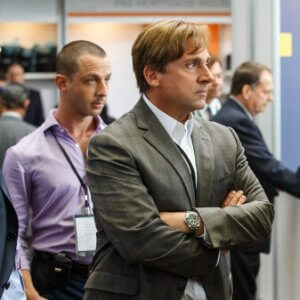 The most atypically likable and amusing person in the movie is Mark Baum (real character Steve Eisman) played absolutely wonderfully by Steve Carell. Baum had graduated magna cum laude from Penn (ironically also the place of education of Warren Buffet and Donald Trump) and then with honors from Harvard Law School. Obviously extremely bright, a tragedy changes his perspective in life — in real life this was the death of his first-born child who was accidentally smothered when the child’s nanny rolled over him as he slept. In the movie the incident is inexplicably changed to the suicide of his brother.
The most atypically likable and amusing person in the movie is Mark Baum (real character Steve Eisman) played absolutely wonderfully by Steve Carell. Baum had graduated magna cum laude from Penn (ironically also the place of education of Warren Buffet and Donald Trump) and then with honors from Harvard Law School. Obviously extremely bright, a tragedy changes his perspective in life — in real life this was the death of his first-born child who was accidentally smothered when the child’s nanny rolled over him as he slept. In the movie the incident is inexplicably changed to the suicide of his brother.
At any rate, this tragedy causes Baum to come to detest the dishonesty and incompetence of his fellow workers, and unlike most he is unafraid to tell them that publicly. He could be unbelievably rude whether in a one-to-one conversation or in the large audience listening to a well-regarded lecturer. He felt whatever was rattling around in his head was so much more important than what most people had to tell him. His small group of junior advisers and flunkies would watch him having conversations with others with anticipation, knowing that most of the time he was not really actively listening to them. If Baum, in the conversation, would suddenly blurt out “Wait, wait — say that again” it meant the person to whom he was talking had actually said something of interest to him.
Despite his irreverence, he was the only one (save one which we will come to) of these soon-to-be multi-millionaires who actually considered the devastation that the housing bubble was causing the working poor on whom it preyed. (As Lewis says “How do you make poor people feel wealthy when wages are stagnant? You give them cheap loans.” Whether they can actually pay them back or not.) Baum says early on after talking to a bank executive who was dismissive of how his policies were so harmful to the poor “That’s when I decided the system was really, ‘F _ _ _ the poor.’” Baum believed that Wall Street played by their own version of the “Golden Rule” — the people who have the gold make the rules. He was the most tortured in cashing in on the enormous profits available to him by his shorting of the subprime assets but, nevertheless, he did so. His disregard of those around him provides much humor… but in the end this story is a tragicomedy.
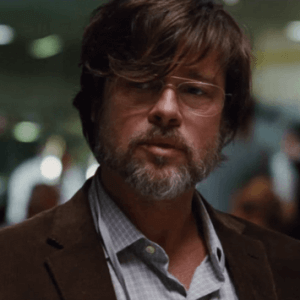 Another memorable character was that of Vinnie Daniel, played by Jeremy Strong. As one of Baum’s lieutenants and advisers, his intensity steals the screen every time he is on it. Known for his roles in Zero Dark Thirty, The Judge, and Lincoln, this is his first role I have seen where my eyes and attention were drawn to him at his every appearance. And Marisa Tomei (always a favorite of mine since playing Mona Lisa Vito in My Cousin Vinny — what a character) as Cynthia Baum, Mark’s spouse, gives a very limited but nuanced performance. When she says, “Saints don’t live on Park Avenue” you sadly understand her marriage and her husband’s dilemma. We would all like to be saints, wouldn’t we?
Another memorable character was that of Vinnie Daniel, played by Jeremy Strong. As one of Baum’s lieutenants and advisers, his intensity steals the screen every time he is on it. Known for his roles in Zero Dark Thirty, The Judge, and Lincoln, this is his first role I have seen where my eyes and attention were drawn to him at his every appearance. And Marisa Tomei (always a favorite of mine since playing Mona Lisa Vito in My Cousin Vinny — what a character) as Cynthia Baum, Mark’s spouse, gives a very limited but nuanced performance. When she says, “Saints don’t live on Park Avenue” you sadly understand her marriage and her husband’s dilemma. We would all like to be saints, wouldn’t we?
The other antiheroes who would make hundreds of millions of dollars by shorting the subprime bonds include a well-disguised Brad Pitt (also a co-producer of this film) playing a very successful derivative trader who dropped out of the rat race and becomes a naturalist and survivalist. For reasons never made clear in the book or the movie — and that is a failing, I think — he helps two novice traders (who “only” have a couple of million to invest and are therefore too small time to play with the big boys) to gain a foothold to be able to short the subprime bonds. His character is especially interesting in that, at one point, he tells the two novices he is bringing along to stop their unbridled celebration as they see their shorting of the subprime assets come to fruition. Pitt’s character says with incredulity “If we’re right, people lose homes. People lose jobs. People lose retirement savings. People lose pensions. You know what I hate about f _ _ _ing banking? It reduces people to numbers. Here’s a number – every 1% that unemployment goes up, 40,000 people die. Did you know that?”
The Christian Perspective
This film is a morality play except that the “dumb” greedy lose a fortune in money but… they are bailed out, for the most part, by the United States government. And we are rooting for the “smart” greedy people who short the failing subprime bonds and make multiple millions of dollars. We root for them. And then we are made sober at the tragedy of it all. As Mark Baum says, “I’m getting madder and madder and I ask this guy how he sleeps at night knowing he’s ripping off working people and he just leaves. He doesn’t say a word. He just walks away.”
As Christians, we read in 1 Timothy 6:6-11a (NLV):
A God-like life gives us much when we are happy for what we have. We came into this world with nothing. For sure, when we die, we will take nothing with us. If we have food and clothing, let us be happy. But men who want lots of money are tempted. They are trapped into doing all kinds of foolish things and things which hurt them. These things drag them into sin and will destroy them. The love of money is the beginning of all kinds of sin. Some people have turned from the faith because of their love for money. They have made much pain for themselves because of this. But you, man of God, turn away from all these sinful things.
Do we believe this? Do we practice this? Do we work for changes to bring justice to our financial system? Do we work to minimize income inequality? It is a tough fight, because greed and materialism are everywhere. And I am not pointing at others but at myself. Even after the financial meltdown of 2008 (pretty much kept from the American public’s awareness – see the excellent HBO film Too Big To Fail), who was punished? Who went to jail? What was changed? What laws have been passed to keep this from happening again? And what have I done about it? Quoting Mark Baum from the book and the film “I have a feeling, in a few years people are going to be doing what they always do when the economy tanks. They will be blaming immigrants and poor people.” Naah, that never happened.
Should I See It?
I have probably made this film sound more serious than it is. There are parts having to deal with CDO’s (an even more complicated subprime financial artifice) that left my head spinning (I never did understand them despite Michael Lewis and then Selena trying to explain what they are). Lewis says that Wall Street financial terms are complicated and almost impossible to understand because Wall Street WANTS them to be. They do not want you to understand what they are really getting away with.
However, my wife and I watched the movie twice and laughed more the second time than the first. But in addition, both times we left the theater shaking our heads at the absurdity and inherent lack of justice in our financial system. See it for those moments of revelation, for a few belly laughs, for many chuckles — some of them in sad recognition of their truth — and for the superb acting of Carell, Bale, Strong, Gosling and Tomei.

